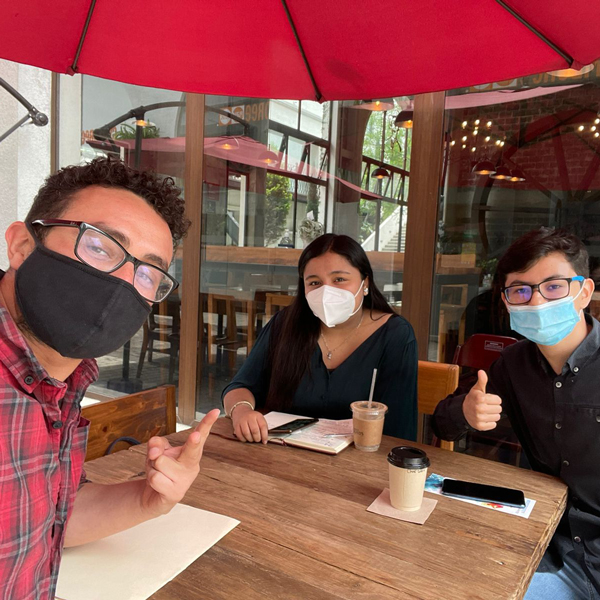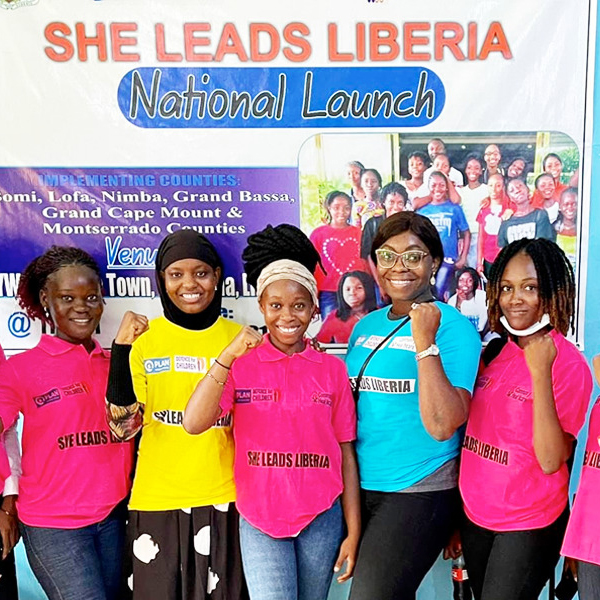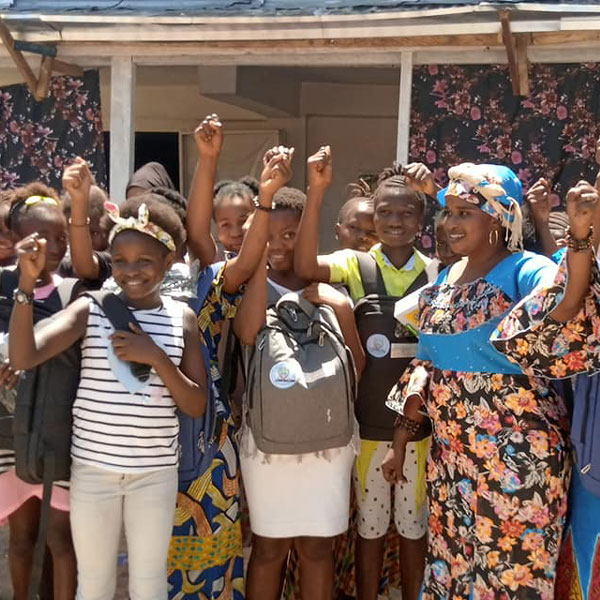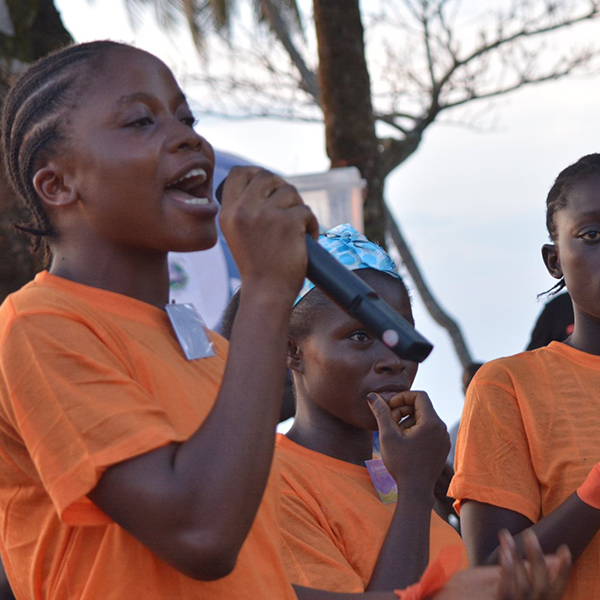Global Fund for Children’s Vice President of Programs Corey Oser spoke with CASE SALONE Program Manager Mustapha Keita about working together to scout partners for a new GFC initiative.
My colleague Amé Atsu David, Capacity Development Specialist for West Africa, and I spent about two weeks in April and May 2022 scouting for new partners for an initiative in Côte d’Ivoire and Guinea. As part of our commitment to ensuring that our work is informed by our partners and their experience, we invited Mustapha Keita, Program Manager of CASE SALONE, one of GFC’s current partners in Sierra Leone, to join our scouting team in Guinea. At the end of our trip, I asked Mustapha to share some reflections.
Can you tell me a bit about your role at CASE SALONE?
Mustapha: I used to serve as the Communications Officer. After some restructuring, I became the Program Manager. In this role, I train staff and serve as head of programs, primarily the school and community programs. We work to advance comprehensive sexuality education in schools by partnering with school authorities to include this subject in their curriculum, and we engage adolescents in the community through a weekly program called Teen-talk. Teen-talk is designed to build adolescents’ life skills and understanding in a bid to address harmful traditional practices such as female genital cutting, prevent early pregnancy, raise awareness about children’s rights, and empower girls to have autonomy over their bodies.
I work closely with the team to ensure that the community-led approach is followed. I also step into the shoes of the Executive Director when she is absent. In this leadership role, I represent the organization, help with fundraising, and ensure that the funds are well managed and are used appropriately.
What has been your personal experience with GFC?
Mustapha: Shortly after I joined CASE SALONE, GFC began to support the organization as its first funder. This created the space for me to explore. Personally, I have gained so much knowledge in programming, project implementation, facilitation, leadership, and the community-led approach.
For example, I used to think that smaller communities did not understand the things that affect them. With the training that GFC organized with the Senegal-based organization Tostan, I was able to understand that communities have so many resources, and they can lead the change they want to see. It is the change agent’s role to use an approach that will engage communities to reflect and lead the change for themselves.
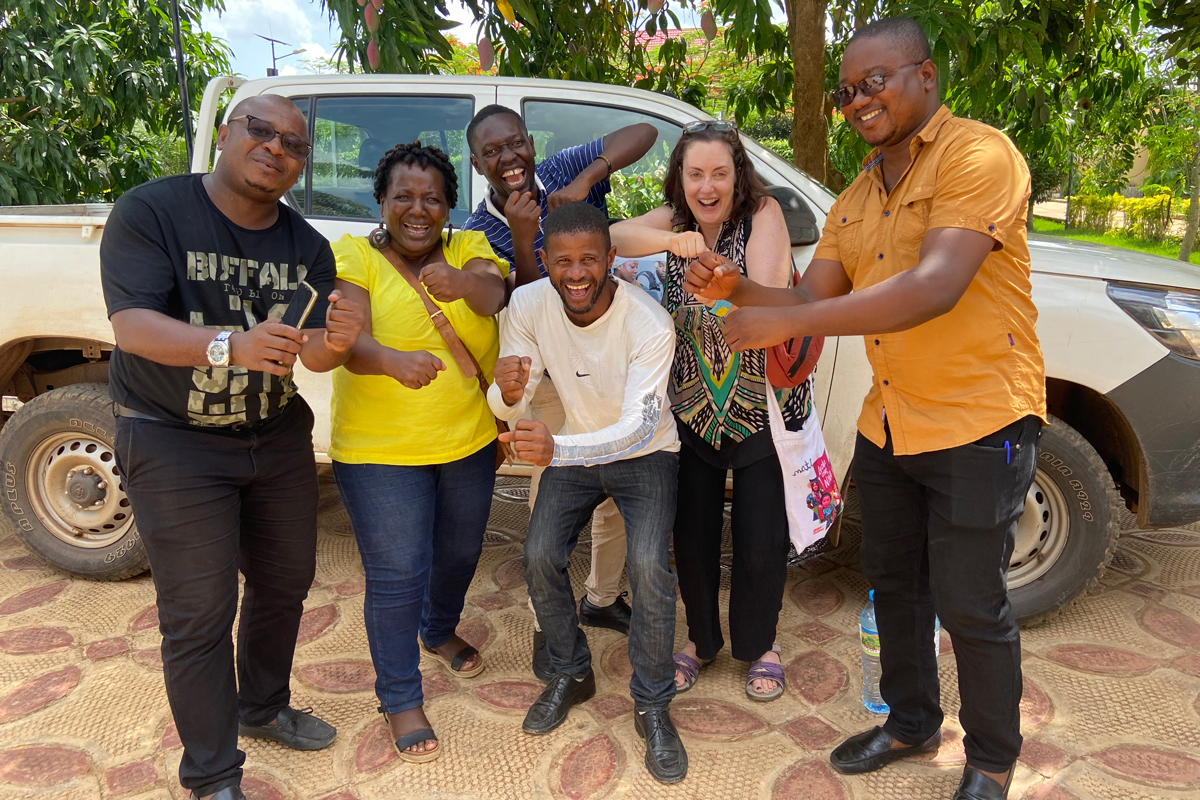
What was your role in the scouting process with GFC?
Mustapha: My role was primarily to pre-scout for female-led organizations that work to promote the educational rights of girls, and to lead the GFC team to interact with each of the organizations. Before the GFC team arrived, I spent a week in the area where we were looking for partners. First, I had to meet with the local government branches in charge of NGOs, and the social development agencies. They provided information about groups that are active in work that affects the lives of adolescent girls, and we convened representatives from several organizations to get to know them briefly and discuss the purpose of GFC’s visit.
I then reached out to organizations to set up site visits. When GFC arrived, I joined the team for the visits to each organization; I shared my experience as a GFC partner and offered my observations after each visit. I also had the chance to assist in recruitment and be part of an interview team for a local consultant who would work with GFC’s future partners in the region.
Can you share some of your observations from the scouting visits in Guinea?
Mustapha: Generally, the organizations are focused on projects without paying attention to strengthening their own capacity and investing in their organizations. Many people establish a new organization just to implement projects, and they do not think about investing in their capacity. But I am convinced that if you don’t strengthen your capacity, you won’t be able to implement a good project. Some of the organizations don’t have basic working tools such as computers or an office space, yet they focus on projects.
I also noticed an absence of teamwork. In many of the organizations, the heads were doing most of the talking. They positioned themselves to have a monopoly over knowledge. I felt that without teamwork, decisions would almost always come from one person and not the group, which can endanger the organization.
Many organizations also don’t seem to be strategic or have a clear thematic focus. In these cases, it is hard to see how the organizations are grounded in what they stand for. You ask about the impact of their work, and they don’t tell you much, because they more or less focus on activities without envisaging the results of their work.
What are some of the things that inspired you about some of the groups we visited?
Mustapha: Some of the groups are promising and have a better structure and some level of teamwork. One could sense a team spirit from a group when one of the team members picked up the conversation from what another member was saying and gave the impression that they are genuine about what they are saying and doing. Some of them really have a strong vision.
What was so nice about them was the interest they have in learning. When sharing ideas with them, they listened, and they were not intolerant to new ideas. They were open-minded and willing to learn. I was also excited about the youth leadership I saw in some of the organizations.
Do you have any observations about the scouting process in general?
Mustapha: In my view, GFC’s approach is the most effective. I’m convinced that searching for organizations for partnership or funding through the traditional means such as proposals is not an effective approach. There are agents everywhere who can do a beautiful and stunning write-up. Being in the field is always better.
Any final comments?
Mustapha: The approach GFC uses is saving a lot of lives. I say this because reinforcing and investing in the capacity of organizations to better position them to impact the communities they are working with saves a lot of lives. By doing this, individuals in the organizations also increase their capacity. For each organization you affect, know that you are impacting individuals within those organizations as well. Taking myself as an example, I am with CASE SALONE today and will do everything to strengthen the capacity of the organization. When I leave, that structure will be in place, and I will remain an empowered young person.
Header photo: Mustapha Keita listens to candidates during an interview with a prospective consultant to work with GFC’s new partners in Côte d’Ivoire and Guinea. © GFC
